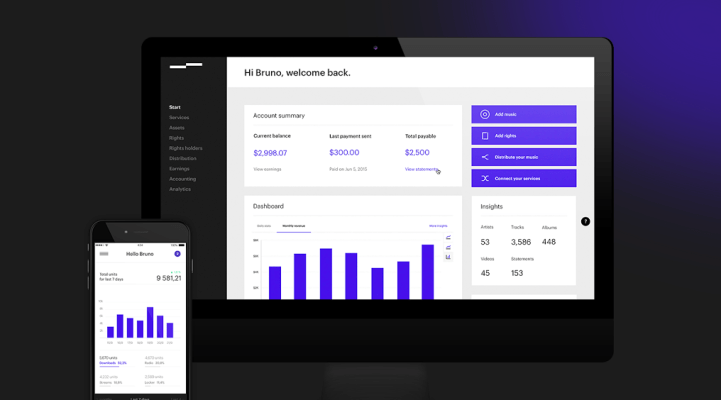Bruno Guez has spent decades in the music business — he hosted a show on public radio, founded Quango Music Group and even worked as the creative director of music at Cirque de Soleil. Over that time, he said he’s watched as changes in the music industry outpaced the tools available to artists and labels.
“There were no modern platforms for the B2B segment of the market,” Guez told me. “It was really very antiquated, with record labels and distributors … not integrating with cloud services to manage their assets.”
Guez’s startup Revelator is working to fix that with a platform for distributing, selling and licensing music online. The company announced it has raised $2.5 million in Series A funding led by Exigent Capital, with participation from Digital Currency Group and Israeli early-stage fund Reinvent (Revelator is headquartered in Tel Aviv). That’s on top of the $3 million the company has already raised.
Revelator says that customers simply upload their music to the system, then Revelator allows them to make their songs available on digital stores and via services like Spotify and Apple Music. It also offers tools for marketing and analytics — Guez argued that one of the product’s main advantages lies in the data.
For example, he said that thanks to Revelator, Boston radio station WBUR can now track each time music gets played in a podcast and then compensate the musicians and labels fairly.
Revelator has also struck a partnership with Wix, providing some of the underlying technology allowing Wix Music customers to not just build a website but also promote and sell their music.
Looking ahead, Guez said he sees opportunity for geographic expansion, particularly in Europe and Asia, and in using data to build a payments platform — so rather than waiting months for payment from music services, musicians might get an advance from Revelator.
“If we can bring mobile payment to emerging markets, that will be a big win,” he said. “Today, artists are not getting paid on mobile. That’s part of our vision and part of what we’re working towards. And the conversation goes beyond music … How do we get people paid faster, with more transparency?”
